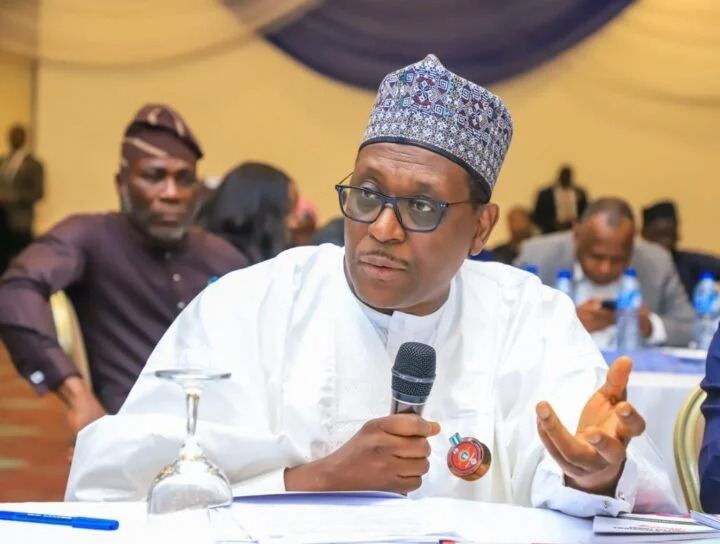The Coordinating Minister of Health and Social Welfare, Prof Ali Pate has revealed that patients from the United Kingdom, United States and West African sub-region have been flocking to Nigeria to access quality medical care.
Pate disclosed this on Tuesday while briefing State House correspondents at the end of the Federal Executive Council (FEC) meeting presided over by President Bola Tinubu.
“People are now beginning to come from the sub-region, and even from faraway places like the UK and the US to receive quality healthcare in Nigeria.
“Despite the challenges we face, significant progress is being made, and the transformation promised by President Tinubu is already taking shape,” he said.
Pate further said the federal government has approved contracts for the equipping of tertiary health facilities; including approval of N12 billion for the purchase of Magnetic Resonance Imaging (MRI), an advanced diagnostic equipment, for six tertiary health institutions.
He listed the beneficiaries to include the University of Uyo Teaching Hospital; Federal Medical Centre, Abeokuta; Obafemi Awolowo University Teaching Hospital, Ile-Ife; Federal Medical Centre, Keffi; Modibbo Adama University Teaching Hospital, Adamawa and Federal Teaching Hospital, Kebbi.
“This investment in critical diagnostic infrastructure is part of a broader effort to expand Nigeria’s health system capacity, ensuring that our tertiary institutions can offer world-class medical services,” he added.
The minister mentioned that Nigeria has officially ratified the African Medicines Agency (AMA) Treaty, which is designed to unify medical regulatory standards throughout the continent.
He added that the treaty which was adopted in 2019 sought to improve access to safe, quality, and effective medical products through a pan-African regulatory framework.
“So far, 37 African Union member states have signed the treaty, with 26 having ratified it. Today, the Federal Executive Council directed that Nigeria take all necessary actions to give full effect to this treaty,” he stated.
Pate stated that the move would expand Nigeria’s pharmaceutical market beyond the nation’s borders, allowing locally manufactured medical products to meet continental standards.
“What we produce here will not just be ‘Made in Nigeria’, but over time, it will be recognised as ‘Made in Africa’. This is a significant step towards self-sufficiency in medical products and pharmaceutical industrialisation,” he said.
He stressed that the federal government is investing in infrastructure, human resources, and regulatory frameworks to create a healthcare system that Nigerians can rely on and that attracts patients from across the globe.
